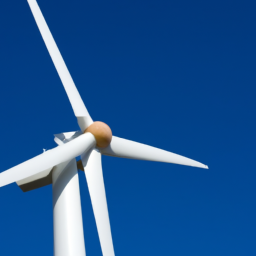Foreign direct investment (FDI) is an ownership stake in a foreign company or project made by an investor, company, or government from another country. FDI is crucial to fulfilling the climate justice agenda and powering the green energy transition. The global transition to clean energy requires significant investments, and FDI can provide the necessary capital to drive this transition forward.
On 23 December 2022, the French government issued decree number 2022-1622, which extended to 31 December 2023 the interim rule, allowing the French government to block foreign investments in certain sectors deemed strategic for national security. This regulation is an example of how FDI is subject to government regulation, and investors need to be aware of the specific regulation of the countries they intend to invest in.
Foreign direct investment regulation around the world, including in France, requires, more than ever, advance planning and strategy. Investors need to be aware of the regulatory environment and potential changes in regulation that could impact their investments. For example, in the United States, foreign investments could be subject to review under the Committee on Foreign Investment in the United States (CFIUS).
Screening under the FDI Act concerns foreign investments made by foreign investors as defined in the FDI Act. In India, the Foreign Exchange Management Act (FEMA) regulates foreign investments, and the government has recently tightened regulation around FDI in e-commerce companies, which could impact investments in this sector.
As a rule, foreign investments in Brazil must be registered with the Central Bank of Brazil (“BACEN”). Registration of foreign investments is mandatory, and failure to do so can result in penalties and fines. Brazil is a significant destination for FDI, particularly in the energy sector, and investors need to be aware of the regulation and potential risks associated with investing in Brazil.
Empty corporate shells in tax havens undermine tax collection in advanced, emerging market, and developing economies. The use of tax havens by companies to avoid paying taxes has come under increasing scrutiny, and governments are taking steps to address this issue. Investors need to be aware of the potential risks associated with investing in companies that use tax havens to avoid taxes.
Portfolio and direct investments are two approaches to investing that differ primarily in how closely involved the investor is with the investment. Portfolio investments are passive investments, such as buying stocks or bonds, where the investor has no control over the company's operations. Direct investments, such as FDI, involve a more active role in the company's operations and management.
FDI can have significant implications for the host country, including job creation, technology transfer, and increased capital flows. However, there are also potential risks associated with FDI, such as the loss of control over key industries and resources, and the impact on local communities and the environment.
In conclusion, foreign direct investment is a complex and highly regulated area of investment, and investors need to be aware of the regulation and potential risks associated with investing in foreign countries. FDI can play a crucial role in driving the green energy transition and fulfilling the climate justice agenda, but investors need to approach FDI with caution and a thorough understanding of the regulatory environment and potential risks.
